Start your free trial:
- Where To Watch

The Time Traveler's Guide to Elizabethan England
In a lavish and groundbreaking way of exploring history, Dr. Ian Mortimer looks back at the time of Queen Elizabeth I and explores the lives of the rich and poor. How did the peasantry survive? How did the privileged become and then stay rich? And what changes were occurring for all? Take a journey through the Golden Age of English history with this unique Tudor history documentary.
Watch The Time Traveler's Guide to Elizabethan England and more acclaimed documentaries on BBC Select today. Restrictions apply*.
The Time Traveler's Guide to Elizabethan England on BBC Select
Ep 1: The Common People How did the old, sick and desperately poor survive in Queen Elizabeth I’s Britain?
Although most people have images of courtiers with fine clothes in lavish palaces, the reality was that most people during Queen Elizabeth’s I’s reign were poor. In this fascinating history documentary, Dr. Ian Mortimer looks at those struggling during the Golden Age of English history. What is it like to live in a dark, dank, smoke-filled hovel where peasants could earn only four pence a day?
Ep 2: The Rich With the Elizabethan elite, ruff size mattered, and the wrong word could get you killed.
Get ready to enter a cut-throat world. Literally. Spies circle the great and good, one false word from your servants might cost you everything and the size of your ruff could make all the difference. In this innovative history documentary, Dr. Ian Mortimer introduces you to the world of the Elizabethan rich and privileged. There is much to learn about how the wealthy dress, greet and behave.
Ep 3: Brave New World How education, urbanization and science helped a burgeoning Elizabethan middle class.
One group emerged during the reign of Elizabeth I: the middle classes. In this compelling history documentary, Dr. Ian Mortimer travels through a new and upwardly mobile section of Elizabethan society. He reveals how urbanization improved lives, heads to Shakespeare’s school to learn how education transformed society and explores how this age of discovery helped spur a scientific revolution.
More documentaries you might like...

Henry VIII's Enforcer: The Rise and Fall of Thomas Cromwell
Was Thomas Cromwell a corrupt, ambitious politician or has history unfairly maligned him?
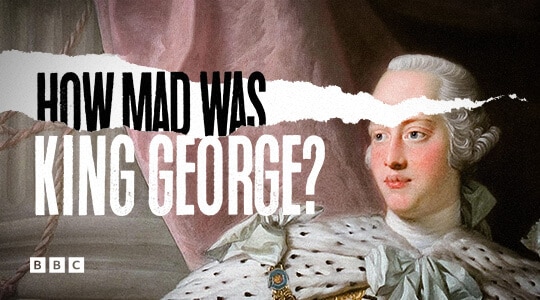
How Mad Was King George?
King George III is remembered as a madman, but is this assessment unfair?

Genius of the Ancient World

Elizabeth I and II: The Golden Queens
Exploring the parallels between Queen Elizabeth I and II

Armada: The Untold Story
The fierce naval conflict between England and Spain that changed the face of Europe.

Archaeology: A Secret History
Better living through archeology. How can our past make sense of our present?

Blitz Spirit with Lucy Worsley
Hitler's Terrifying Battle of Britain Bombing. Blitz Spirit with Lucy Worsley, BBC's leading historian

Belsen: The Untold Story
Using survivor testimony and archive footage, the story of the infamous camp is told.

African Apocalypse
The atrocities committed by a rogue French officer in Africa are still being felt today.

The Boy Who Would Be King
Was English King Charles II a sex-obsessed hedonist or brilliant political strategist?

Paradise Soldiers
Untold tales of military valor and sacrifice by decades of young Cook Islanders.

Union with David Olusoga
Renowned historian David Olusoga reveals the stories behind the United Kingdom.
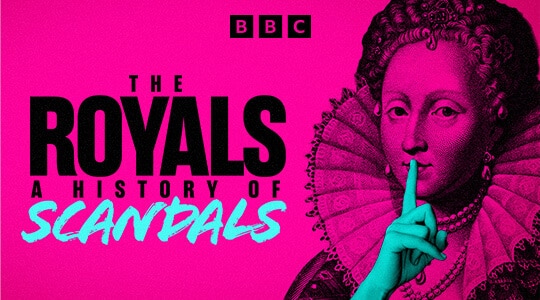
The Royals: A History of Scandals
Professor Suzannah Lipscomb looks into history's most scandalous British royal rumors.

History of Tanks
How the development of tanks during World War I changed the course of military history.

Thomas Cromwell: A Very Modern Tudor
The spectacular rise and fall of Tudor King Henry VIII’s right hand man Thomas Cromwell.

Castles: Britain's Fortified History
Sam Willis traces the story of Britain's castles in history, art, literature, and conflict.

Phil Spencer's History of Britain in 100 Homes
The architectural history of the British Isles is explored via 100 very different houses.

Ancient Powers
How the ancient powers of classical civilization grew, thrived, and ultimately failed.
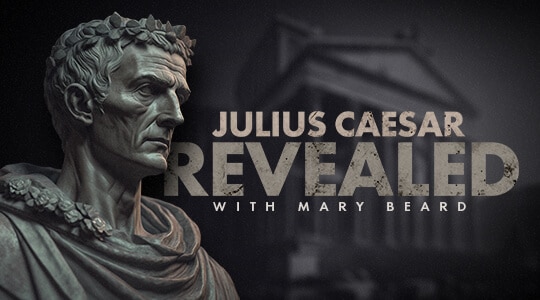
Julius Caesar Revealed with Mary Beard
World renowned historian Mary Beard is on a mission to uncover the real Julius Caesar.

Elizabeth: A Life Through the Lens
How Elizabeth II was photographed over the years and the importance of image to her reign.

The Six Queens of Henry VIII
Rediscover the Queens who shaped a King & his legacy in The Six Queens of Henry VIII, BBC's new look at the King's infamous wives.

After Braveheart
Braveheart was a classic movie. But historically, what happened next?

Genghis Khan
Genghis Khan's incredible journey from poverty in Mongolia to conquering Europe.

Prince Philip: The Plot To Make A King
The political maneuvers required to bring about the union of Philip and Queen Elizabeth.
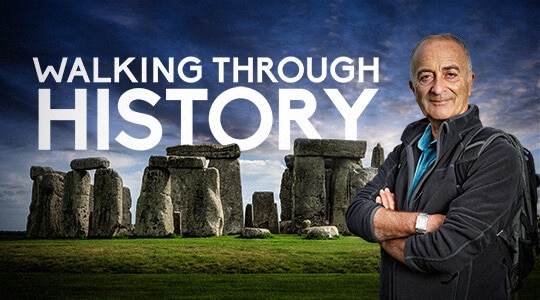
Walking Through History
Take a historic tour through some of the British Isles most impressive landscapes.

Cromwell's Head
A strange, mysterious and grisly saga from a dark period of English history.

Dynasties: The Families That Changed The World
Delve into the inner workings of the world's most powerful and intriguing families.

JFK: The Home Movie that Changed the World
The little-known history of the actual 8mm film that captured the assassination of JFK.

Titanic's Tragic Twin: The Britannic Disaster
A look at how and why Titanic’s sister ship Britannic suffered a similar tragic fate.

Royal Antiques Revived
Remarkable royal items with curious pasts are restored using traditional techniques

Greeks of the Sea
With incredible wildlife and amazing seafood, Greece’s seas are truly blessed by the gods.

The Assassination of JFK
A unique retelling of the tragic death of JFK featuring expert testimony and new theories.
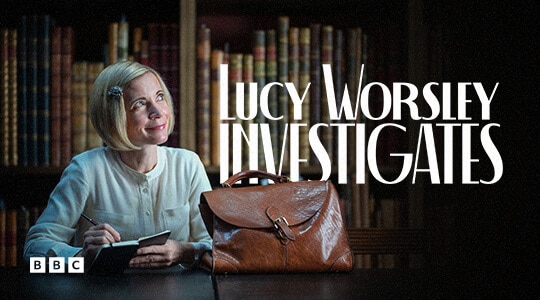
Lucy Worsley Investigates
The shocking truth behind history's most infamous mysteries.
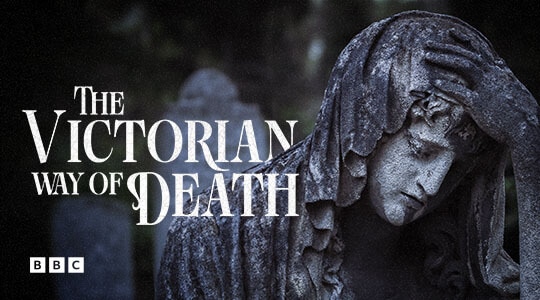
The Victorian Way of Death
From body-snatchers to overflowing graveyards, death in Victorian Britain is unearthed.

Royal Autopsy with Alice Roberts
Professor Alice Roberts explores the death of famous royals using 'as real' autopsies.

The Man Who Destroyed Oscar Wilde
The epic story of the famous playwright’s downfall at the hands of an old friend.
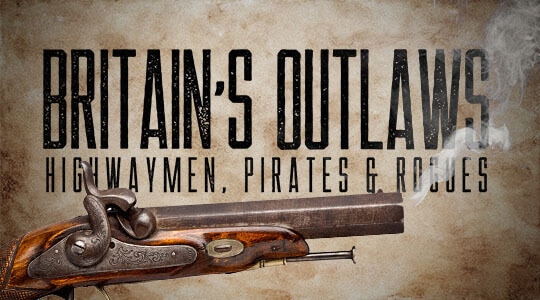
Britain's Outlaws: Highwaymen, Pirates and Rogues
Explore the fascinating world of British outlaws, rogues, pirates and highwaymen.
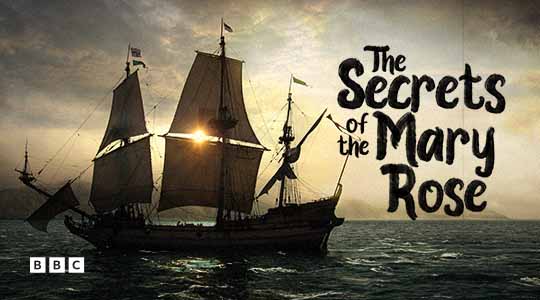
The Secrets of the Mary Rose
How the wreck of Henry VIII’s ship, The Mary Rose was discovered, excavated, and eventually raised from the seabed.

The Battle of Britain
Britain's war against Germany seemed lost. The Battle of Britain was their last chance.

The Story of the Jews
Historian Simon Schama explores the Jewish story from ancient times to the present day.
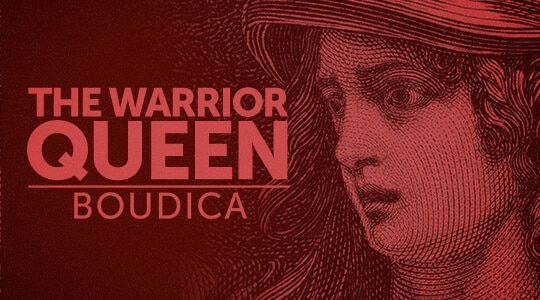
The Warrior Queen: Boudica
Betrayed and humiliated, Boudica took on the invading Roman army and almost defeated them.

Philippa Gregory's The Real White Queen And Her Rivals
The women at the heart of the bloody War of the Roses that helped shape British history.

Woman standing facing the right with British flags in the background
The Stuarts
The Stuart monarchs are considered merciless tyrants, but they also forged modern Britain.
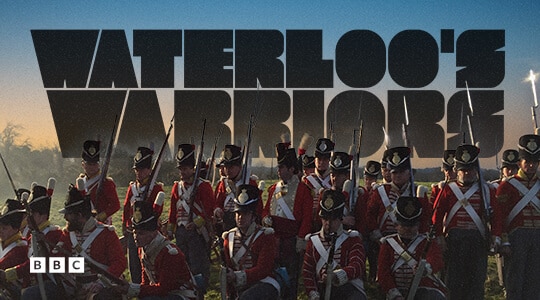
Waterloo's Warriors
The story of the Battle of Waterloo using unpublished accounts from Wellington's troops.
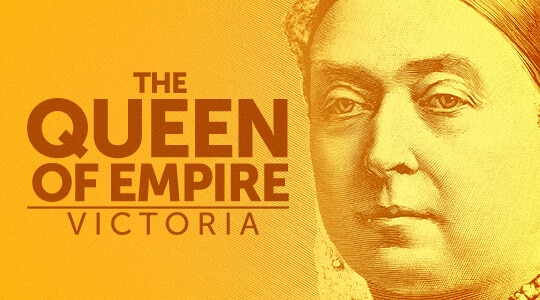
The Queen Of Empire: Victoria
Victoria oversaw an astonishing period of change as the British Empire ruled the world.

The Rebel Queen: Eleanor of Aquitaine
The astonishing monarch who was queen of both France and England
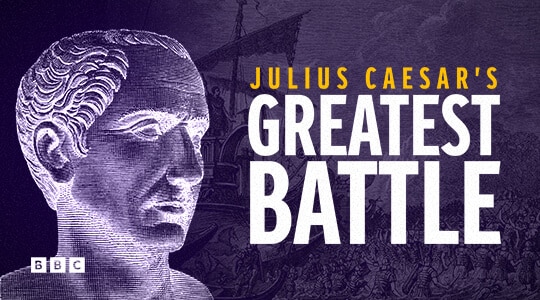
Julius Caesar's Greatest Battle
Exploring a crucial battle during Julius Caesar's bloody campaign to conquer Gaul.
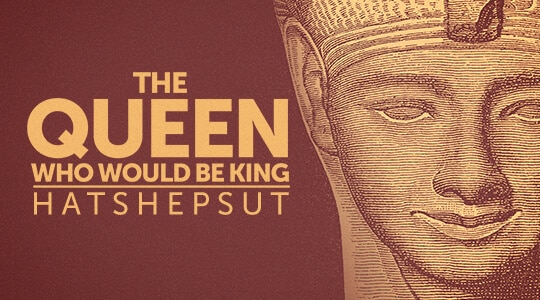
The Queen Who Would Be King
The story of Egyptian Queen Hatshepsut who did the unthinkable and declared herself king.

The Men and the Machines that Beat Hitler
The story of the Fifth Royal Tank Regiment who fought during World War II
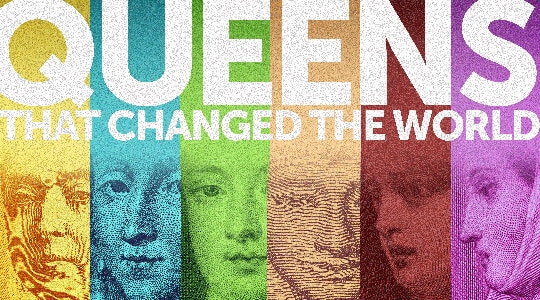
Queens That Changed The World
A look at six powerful women who ruled their people and changed the course of history.

The Forgotten Queen: Anne
Modelling her reign on Elizabeth I, Anne was the first queen of a unified Great Britain.

The Virgin Queen: Elizabeth I
Elizabeth ruled a divided nation but became one of the most powerful leaders in history.

The Real Lawrence of Arabia
Who was the man behind Lawrence of Arabia and why does he inspire such devotion today?

Marie Antoinette
Marie Antoinette is considered decadent, uncaring, and reprehensible. But is this fair?

The Somme 1916: From Both Sides Of The Wire
Historian Peter Barton explores the bloody battle that defined the First World War.

Nelson: Britain's Great Naval Hero
The scandals, secrets, and strategies of one of Britain’s greatest naval heroes: Nelson.

The Nazis: A Warning From History
How was it possible that the cultured nation at the heart of Europe ever allowed Hitler to come to power?

Curse of the Ancients with Alice Roberts
A look back at cataclysmic events in ancient history that still have relevance today

The remarkable history of 'invasion' in the British Isles spanning thousands of years.
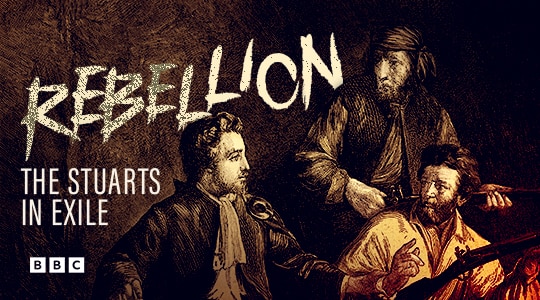
Rebellion: The Stuarts In Exile
How much threat did the deposed Stuart dynasty pose to the developing British state?
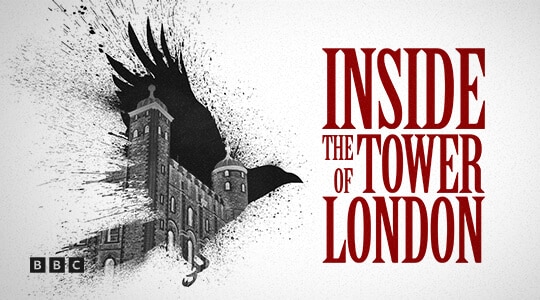
Inside the Tower of London
Go behind closed doors to see how an iconic piece of British history is run today.
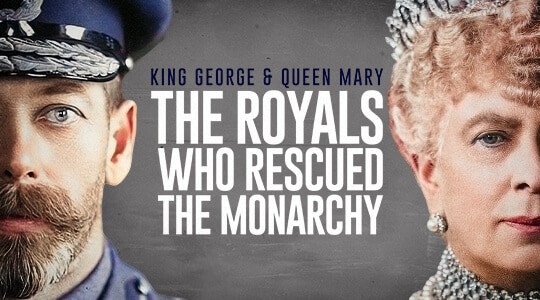
King George and Queen Mary: The Royals Who Rescued the Monarchy
The pioneering reign of Elizabeth II's grandparents, King George and Queen Mary.

Last Battle Of The Vikings
How did the Norsemen and their presence shape the identity and culture of Scotland?

The Catacomb Mystery
Can the discovery of thousands of skeletons help unlock the secrets of the Roman Empire?

The Last Day Of World War One
Michael Palin tells the shocking true story of the last soldiers to die in World War I.

India's Partition: The Forgotten Story
In 1947, India was divided in two leading to violence and death. Why did it happen?
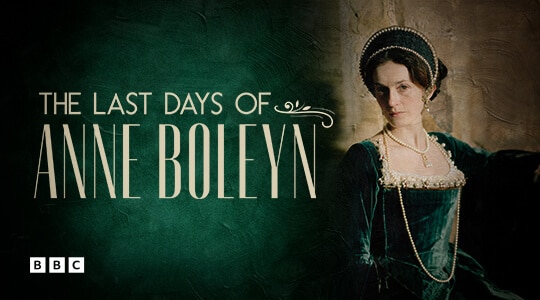
The Last Days Of Anne Boleyn
What led to the dramatic downfall and violent execution of Queen Anne Boleyn in 1536?

The Most Dangerous Man In Tudor England
The dramatic story of William Tyndale and his mission to translate the Bible into English.

Renaissance Education: The Schooling Of Thomas More's Daughter
How the ideas that shaped Margaret More's education changed the cultural life of England.

Russia: 1000 Years Of History
An exploration of Russia's beginnings to its position as the biggest country in the world.

Take Me To Titanic
A journey to visit the world’s most famous shipwreck

Scotland: Rome's Final Frontier
The amazing story of how Scotland became the Roman Empire's toughest military challenge.

Rome: What Lies Beneath
Discover what the glory of the Roman Empire was really like using space-age technology

Image of the profile view of a pharoh
Tutankhamun: Life, Death and Legacy
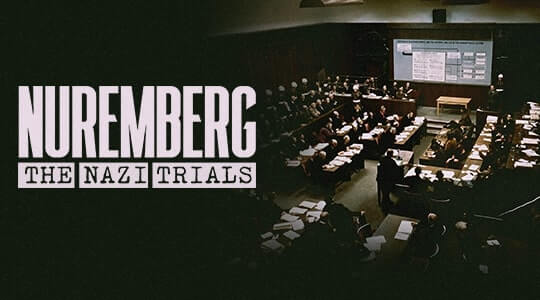
Image of a court in session.
Nuremburg: The Nazi Trials
Exploring one of history’s most important trials that brought Nazis to justice

How three great explorers unlocked the mysteries of the ancient Egyptians.
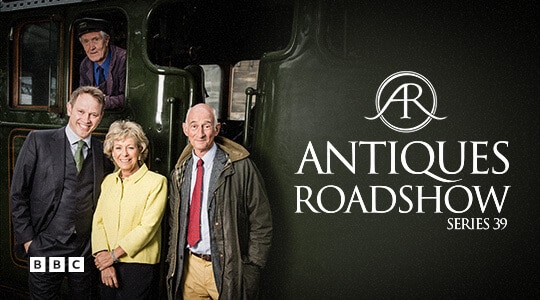
Antiques Roadshow
What treasures will be found as antique experts appraise the public’s heirlooms?

100 Years of BBC News
How has BBC News and the world changed over 100 years?

The Normans
How the extraordinary ambition of the Normans transformed the history of Europe.

Return of the Black Death
Could 25 medieval skeletons help to eradicate the Bubonic plague?
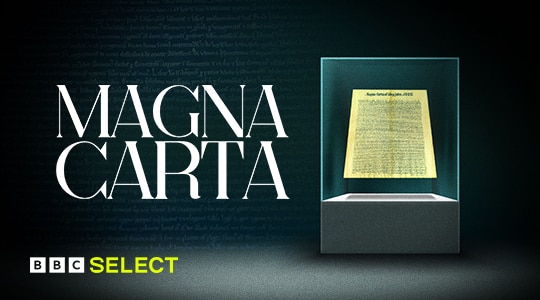
Magna Carta
David Starkey explores the origins of the Magna Carta
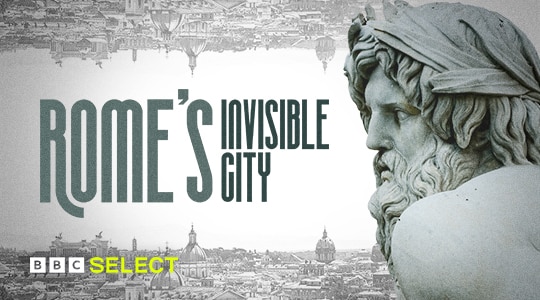
Rome's Invisible City
Venture beneath the streets of Rome to explore a hidden city seen by very few

The Hector: Canada's Mayflower
The horrific story of migrants who left Scotland in 1773 to settle in Nova Scotia

Italy's Invisible Cities
The hidden history of Venice, Naples and Florence
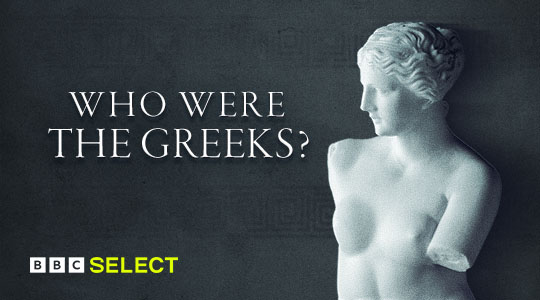
Who Were The Greeks?
Explore the brutal, brilliant and still influential Ancient Greeks

The story of Napoleon


The Art of Gothic
Why were Brits in the 19th-century obsessed with art that was horrific, macabre and weird?

The Silk Road
The world's first superhighway that carried goods and ideas between Europe and China.

The Wild West
What is the truth behind the iconic figures of the Wild West – and what is pure myth?

Simon Schama's Shakespeare and Us
Get underneath the skin of the playwright to understand why his stories are so relevant today

Ancient Worlds
An epic quest through the birth of civili`ation and the development of humanity

Ancient Treasures with Bettany Hughes
Bettany Hughes discovers new archaeological finds in Europe and the Middle East.
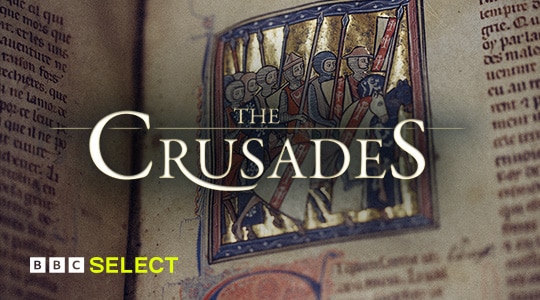
The Crusades
Why were the Crusaders willing to endure pain, death and starvation in the name of God?

Africa and Britain: A Forgotten History
From slavery to settlement, award-winning historian David Olusoga explores the history of black Britain.
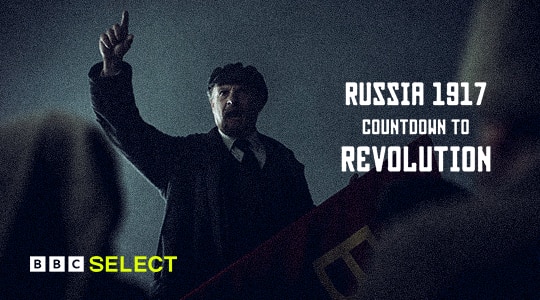
Russia 1917: Countdown to Revolution
Three men rise from obscurity to unleash a bloody revolution that changed history forever.

The Persians: A History of Iran
How was the world's first empire born and what led to its ultimate destruction?

Secret Cities
How much can the artistic history of a great city tell us about its character?
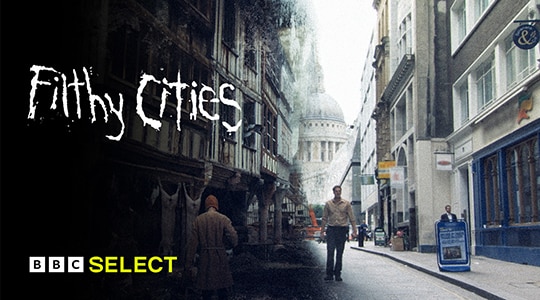
Filthy Cities
Dan Snow explores the murky histories of London, Paris and New York from the bottom up.

Vienna: Empire, Dynasty and Dream
The rise of one of the great cities and how it offers a window into power, faith and war.

The Birth of Empire: The East India Company
The world’s first megacorp. How Britain’s East India Company grew into an imperial power.

Royal Cousins at War
It makes The Crown look like Sesame Street. The bitter regal rivalries that led to war.

Genius of the Modern World
Emigres, recluses, enemies of the state. How Marx, Nietzsche and Freud changed the world.

American History's Biggest Fibs
American history is fake, fact? Historian Lucy Worlsey delves deeper into US mythology.

Suffragettes
The violence, valor and sacrifices made by the women fighting for their right to vote.
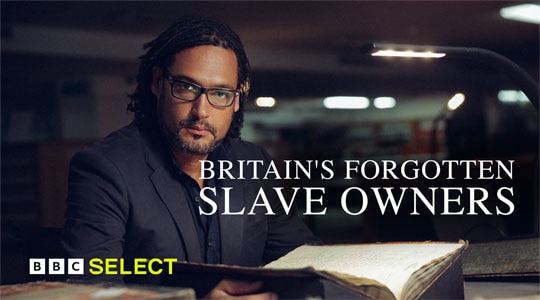
Britain's Forgotten Slave Owners
People as property: historian David Olusoga on the untold stories of British slavery.
BBC Select free trial
BBC Select is available on Amazon Prime Video Channels, the Apple TV app and The Roku Channel for only $5.99 a month. Start a 7-day free trial and watch a range of acclaimed documentaries from the BBC and beyond. Restrictions apply*.
Trending documentaries
Trending and popular shows to watch on BBC Select

Lady Killers with Lucy Worsley
Lucy Worsley investigates murderesses from history and their extraordinary crimes.
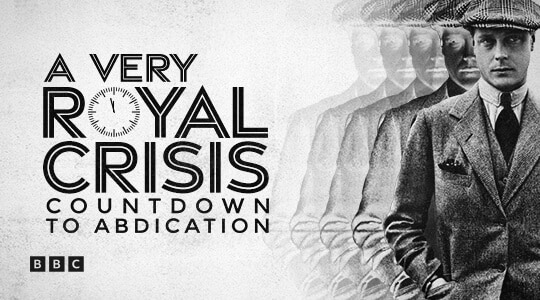
A Very Royal Crisis: Countdown to Abdication
The biggest scandal and constitutional crisis ever to engulf the British Royal Family.

Eden: Untamed Planet
Discover the secrets of Earth's few remaining untouched lands, all brimming with life.

After Oppenheimer: The Doomsday Clock and the Nuclear Threat
What is the Doomsday Clock and who are the atomic scientists that created it?

Influential with Katty Kay
Katty Kay meets some of the most powerful and change-making people in culture, science and business.

Natural World Vol 4
Incredible stories of animal life and survival from all around the planet are shared.

Buckingham Palace with Alexander Armstrong
Alexander Armstrong takes a privileged look behind the scenes of Buckingham Palace.

Louis Theroux Interviews... Bear Grylls
Louis Theroux spends time with adventurer and television presenter Bear Grylls.
BBC Select Email Newsletter
Sign up to be the first to know about new shows on BBC Select, the latest collection of documentaries and other content from BBC Studios we think you’ll enjoy.
Want to see more?
We will keep fighting for all libraries - stand with us!
Internet Archive Audio

- This Just In
- Grateful Dead
- Old Time Radio
- 78 RPMs and Cylinder Recordings
- Audio Books & Poetry
- Computers, Technology and Science
- Music, Arts & Culture
- News & Public Affairs
- Spirituality & Religion
- Radio News Archive

- Flickr Commons
- Occupy Wall Street Flickr
- NASA Images
- Solar System Collection
- Ames Research Center

- All Software
- Old School Emulation
- MS-DOS Games
- Historical Software
- Classic PC Games
- Software Library
- Kodi Archive and Support File
- Vintage Software
- CD-ROM Software
- CD-ROM Software Library
- Software Sites
- Tucows Software Library
- Shareware CD-ROMs
- Software Capsules Compilation
- CD-ROM Images
- ZX Spectrum
- DOOM Level CD

- Smithsonian Libraries
- FEDLINK (US)
- Lincoln Collection
- American Libraries
- Canadian Libraries
- Universal Library
- Project Gutenberg
- Children's Library
- Biodiversity Heritage Library
- Books by Language
- Additional Collections

- Prelinger Archives
- Democracy Now!
- Occupy Wall Street
- TV NSA Clip Library
- Animation & Cartoons
- Arts & Music
- Computers & Technology
- Cultural & Academic Films
- Ephemeral Films
- Sports Videos
- Videogame Videos
- Youth Media
Search the history of over 866 billion web pages on the Internet.
Mobile Apps
- Wayback Machine (iOS)
- Wayback Machine (Android)
Browser Extensions
Archive-it subscription.
- Explore the Collections
- Build Collections
Save Page Now
Capture a web page as it appears now for use as a trusted citation in the future.
Please enter a valid web address
- Donate Donate icon An illustration of a heart shape
The time traveller's guide to Elizabethan England
Bookreader item preview, share or embed this item, flag this item for.
- Graphic Violence
- Explicit Sexual Content
- Hate Speech
- Misinformation/Disinformation
- Marketing/Phishing/Advertising
- Misleading/Inaccurate/Missing Metadata
cut off text on some pages due to tight binding
![[WorldCat (this item)] [WorldCat (this item)]](https://archive.org/images/worldcat-small.png)
plus-circle Add Review comment Reviews
286 Previews
30 Favorites
DOWNLOAD OPTIONS
No suitable files to display here.
PDF access not available for this item.
IN COLLECTIONS
Uploaded by station12.cebu on February 24, 2022
SIMILAR ITEMS (based on metadata)

- Rent or buy
- Categories Categories
- Getting Started

The Time Traveller's Guide to Elizabethan England
- Episode number
- Newest episodes
- Available to watch

Customers also watched

How are ratings calculated? Toggle Expand Toggle Expand
- Amazon Newsletter
- About Amazon
- Accessibility
- Sustainability
- Press Center
- Investor Relations
- Amazon Devices
- Amazon Science
- Sell on Amazon
- Sell apps on Amazon
- Supply to Amazon
- Protect & Build Your Brand
- Become an Affiliate
- Become a Delivery Driver
- Start a Package Delivery Business
- Advertise Your Products
- Self-Publish with Us
- Become an Amazon Hub Partner
- › See More Ways to Make Money
- Amazon Visa
- Amazon Store Card
- Amazon Secured Card
- Amazon Business Card
- Shop with Points
- Credit Card Marketplace
- Reload Your Balance
- Amazon Currency Converter
- Your Account
- Your Orders
- Shipping Rates & Policies
- Amazon Prime
- Returns & Replacements
- Manage Your Content and Devices
- Recalls and Product Safety Alerts
- Conditions of Use
- Privacy Notice
- Consumer Health Data Privacy Disclosure
- Your Ads Privacy Choices
Sign up to The National Archives' mailing list for regular news, updates and priority booking for events.

- Family History
- Inspired By
Custom Prints
Your Bag is Empty
- £0.00 Subtotal
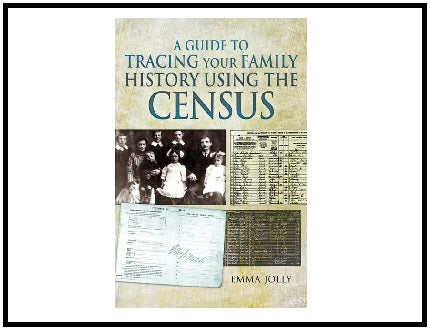
- Family History By Theme
- For Beginners
- By Occupation
- By Military Record
- By Census Records
- Gifts for Family Historians
- Family History By Type
- Storage Equipment
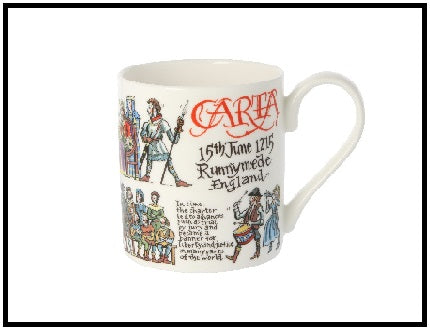
- Gifts By Theme
- Monastic Collection
- 20th Century
- Gifts By Type
- Gifts for Her
- Gifts for Him
- Gifts for the Home
- Gifts under £20
- Gifts under £50
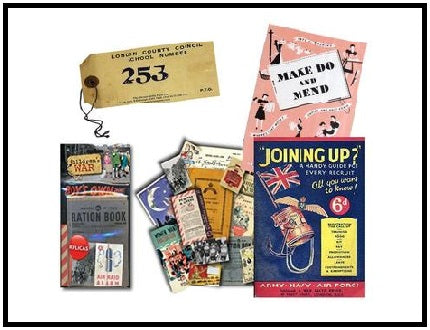
- Replicas By Theme
- Replicas By Type
- Guides and Training Manuals

- Fashion and Jewellery By Theme
- Exclusive to The National Archives
- Fashion and Jewellery By Type

- Stationery By Theme
- The Art and Craft of the Book
- Stationery By Type
- Notebooks and Journals
- Desk Accessories
- Pens and Pencils
- Greetings Cards
- Jigsaw Puzzles
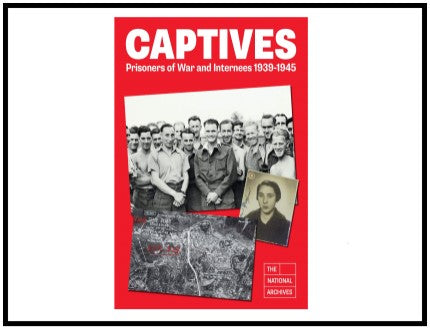
- Books By Theme
- Landscape and Identity
- Women's History
- Intelligence and Espionage
- Books By Type
- Our Publications
- Professional Archiving
- Puzzle Books
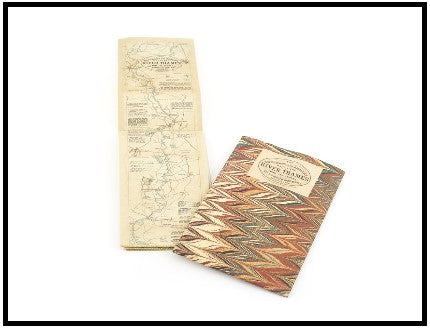
- Maps By Theme
- Historical Maps and Atlases
- Military Maps and Atlases
- Books about Maps and Mapmakers
- Maps By Type
- Trench Maps
- Battlefield Guides
- Gifts for Map Lovers
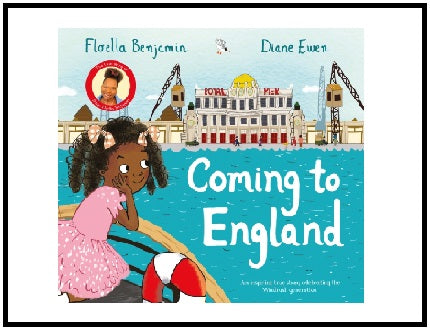
- Kids By Theme
- Pocket Money Toys
- Puzzles and Games
- Kids By Age

- Inspired By Our Exhibitions
- Great Escapes: Remarkable Second World War Captives
- Treason: People, Power & Plot
- The 1920's: Beyond The Roar
- Our Collection
- Our Building
- Inspired By History
- Coronation of King Charles III
- Richard III
- Animals In War
- Festival of Britain 1951
- Remembrance
- Suffragettes
- Magna Carta
- Folklore and Superstition
- The Age of Exploration

- Custom Prints By Theme
- Industry and Technology
- Pastimes and Entertainments
- Public Information Posters
- Royalty and Jubilee
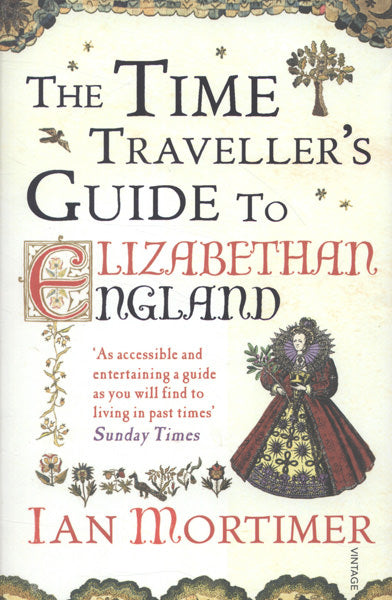
The Time Traveller's Guide to Elizabethan England
Your wishlist has been temporarily saved. Please Log in to save it permanently.
Get Notified
Please notify me when back in stock
The past is a foreign country - this is your guide. We think of Queen Elizabeth I's reign (1558-1603) as a golden age. But what was it actually like to live in Elizabethan England? If you could travel to the past and walk the streets of London in the 1590's, where would you stay? What would you eat? What would you wear? Would you really have a sense of it being a glorious age? And if so, how would that glory sit alongside the vagrants, diseases, violence, sexism and famine of the time? In this book Ian Mortimer reveals a country in which life expectancy is in the early thirties, people still starve to death and Catholics are persecuted for their faith. Yet it produces some of the finest writing in the English language, some of the most magnificent architecture, and sees Elizabeth's subjects settle in America and circumnavigate the globe. Welcome to a country that is, in all its contradictions, the very crucible of the modern world.
We offer free standard UK delivery on all orders over £50.
Orders up to £30 are charged a flat fee of £4.95
Orders between £30.01 and £50 are charged a flat fee of £6.95.
Usual UK delivery timescale (excluding custom prints) is between 5 and 7 working days from the date of dispatch. Please allow up to 14 working days for delivery. For custom print delivery pricing and timescales see below.
Royal Mail industrial action taking place in 2023 may have an impact on delivery times to all destinations both within the UK and internationally. These delays are out of our control.
Delivery Worldwide
We can also ship most items worldwide.
For full details, including prices, click here.
Your prints and frames will be handmade by King & McGaw at their Sussex workshop.
Unframed orders are shipped within 5 working days (normally shipped next day).
Framed orders are shipped within 20 working days.
Further information on delivery timescales for custom prints can be found here.
If you are not completely satisfied with your item you may return it within 28 days for a refund.
For further details on returns click here .
Unfortunately we cannot offer a refund on custom prints unless they are faulty or we have made a mistake. Custom prints are exempt as they are made to order.
Manufacturer/Publisher: Vintage Binding: Paperback Author: Ian Mortimer
SKU: 9780099542070
YOU MAY ALSO LIKE
You may also like.
- International edition
- Australia edition
- Europe edition

The Time Traveller's Guide to Elizabethan England by Ian Mortimer – review
F resh from his acclaimed tour through 14th-century England , Ian Mortimer travels forward 200 years in his time machine. Setting us down in the reign of Elizabeth I, he aims to recreate, as he puts it, "the reality of the past", to help the reader understand more vividly the doubts, hopes, customs and practices of daily Elizabethan life. His choice of age is a shrewd one: as well as being populated by instantly recognisable individuals – Shakespeare, Sir Francis Drake and "Gloriana" herself – it is a world in many respects distanced from that of his previous book. In the late 16th century people understood the world differently and, thanks in no small part to Elizabeth's religious settlement of 1559, they understood God differently too.
Like its predecessor, this is largely a work of social history. Leading us through the Elizabethan landscape, Mortimer adopts the same conversational style, made intimate by the second-person asides that direct our gaze through town and city streets, chambers, closets and theatres, moving fluently across the vast disparities in wealth and living standards that separated the richest and the poorest. Ranging from England's landscape and its people, to how to behave and what to eat, drink and wear, the book presents a well-chosen accumulation of social, cultural and economic detail.
Mortimer underscores the changes, big and small, that make Elizabethan England distinctive: a burgeoning population, especially in towns and cities; the outlandish fashions of the well-off; the increasing ubiquity of glass windows, the arrival of tobacco (recommended by one enthusiast as a preventive "against rheums and other diseases engendered in the lungs") and the announcement of the first public lottery. He charts, too, the state's efforts to assert its control, legislating on everything from Gypsies to treason. This, after all, was an age in which the Elizabethan state was, or felt itself to be, under threat. As Mortimer points out, for Catholics, life became increasingly hard throughout the reign: "Just 35 years see Catholicism change from being the respectable norm to the religion of a persecuted minority."
Mortimer has an eye for telling anecdotes, and in these, his book is at its best. He relishes the inadvertently entertaining fulminations of the Puritan Philip Stubbes, who in another time would surely have been writing indignant letters to his local newspaper. "Is this murdering play now an exercise for the Sabbath day?" he thunders of football, which admittedly was a rather more violent game then than it is now. Equally striking are the theatricals of the highwayman Gamaliel Ratsey who, on the point of being hanged, saw heavy stormclouds approaching and stretched out his last words long enough to ensure that the attendant officials were thoroughly drenched.
Mortimer is at pains to point out how hard life remained for women, particularly and – inevitably – those of the lower ranks. To cite one of a number of examples, a servant called Joan Somers is raped and then accused of the sin of fornication. At the other end of the social spectrum, he remarks on the queen's habit of inadvertently being found in her underclothes when male ambassadors were admitted to the royal presence.
At times, however, the detail can become overwhelming, with page-long tables and quotations following each other in rapid succession: at these points, this feels more like a sourcebook or digest than a guide, and its aim of placing the 21st-century reader in the Elizabethan environment becomes obscured. What's more, in aiming to define the particular qualities of Elizabethan England – which, he claims, is both an age of exceptional individual creativity and brutality – Mortimer runs the risk of historical anachronism.
He also on occasion ringfences the period too closely, contrasting it with the "middle ages" – a distinction that Elizabethans themselves would not have recognised – and there is a tension between his desire to place the reader in the moment and to pin down the qualities that broadly define the age.
Certain claims for Elizabethan innovation do not ring true: the rich often drank out of glasses (as opposed to tankards) well before Elizabeth's reign, while they had long before abandoned the great hall for the comfort of smaller and less draughty chambers. Similarly, the early 15th-century gardener tending the ornate arbours and alleys of the "Rosamondesbower" at the royal palace of Woodstock might have had something to say about Mortimer's claim that formal gardens were an Elizabethan development.
In the "envoi" at the book's end, Mortimer interprets the age as one of opportunity, in which many of the profound changes in society "are made by individuals" – he cites the likes of Shakespeare, Elizabeth's righthand-man William Cecil, Lord Burghley and the queen herself – something which, he claims, is impossible in our own institution-bound 21st-century world. The book doesn't quite convey, though, why the Elizabethan age should have been quite so distinctly individual-friendly – if indeed it was.
None of which should obscure that Mortimer has again written a vivid and highly entertaining book. Echoing the view of the social historian Christopher Dyer that to know of past societies is to understand ourselves, he has found an attractive formula with which to present the lives of ordinary people in history, and to bring history to life.
Thomas Penn's Winter King is published by Penguin.
- History books
Comments (…)
Most viewed.

- Great Britain

Download the free Kindle app and start reading Kindle books instantly on your smartphone, tablet or computer – no Kindle device required .
Read instantly on your browser with Kindle for Web.
Using your mobile phone camera - scan the code below and download the Kindle app.

Follow the author

Image Unavailable

- To view this video download Flash Player
The Time Traveller's Guide to Elizabethan England Hardcover – 1 Mar. 2012
We think of Queen Elizabeth I as 'Gloriana': the most powerful English woman in history. We think of her reign (1558-1603) as a golden age of maritime heroes, like Sir Walter Raleigh, Sir Richard Grenville and Sir Francis Drake, and of great writers, such as Edmund Spenser, Christopher Marlowe, Ben Jonson and William Shakespeare. But what was it actually like to live in Elizabethan England? If you could travel to the past and walk the streets of London in the 1590s, where would you stay? What would you eat? What would you wear? Would you really have a sense of it being a glorious age? And if so, how would that glory sit alongside the vagrants, diseases, violence, sexism and famine of the time? In this book Ian Mortimer answers the key questions that a prospective traveller to late sixteenth-century England would ask. Applying the groundbreaking approach he pioneered in his bestselling Time Traveller's Guide to Medieval England , the Elizabethan world unfolds around the reader. He shows a society making great discoveries and winning military victories and yet at the same time being troubled by its new-found awareness. It is a country in which life expectancy at birth is in the early thirties, people still starve to death and Catholics are persecuted for their faith. Yet it produces some of the finest writing in the English language and some of the most magnificent architecture, and sees Elizabeth's subjects settle in America and circumnavigate the globe. Welcome to a country that is, in all its contradictions, the very crucible of the modern world.
- Book 2 of 4 Ian Mortimer’s Time Traveller’s Guides
- Print length 432 pages
- Language English
- Publisher Bodley Head
- Publication date 1 Mar. 2012
- Dimensions 16.51 x 3.81 x 24.13 cm
- ISBN-10 1847921140
- ISBN-13 978-1847921147
- See all details
Customers who viewed this item also viewed

Product description
About the author, product details.
- Publisher : Bodley Head; First Edition (1 Mar. 2012)
- Language : English
- Hardcover : 432 pages
- ISBN-10 : 1847921140
- ISBN-13 : 978-1847921147
- Dimensions : 16.51 x 3.81 x 24.13 cm
- 842 in Religious History of Christianity
- 6,370 in Travel & Tourism (Books)
About the author
Ian mortimer.
Dr Ian Mortimer has been described by The Times newspaper as 'the most remarkable medieval historian of our time'. He is best known as the author of The Time Traveller's Guides: to Medieval England (2008); to Elizabethan England (2012); to Restoration Britain (2017); and to Regency Britain (2020). He is a Fellow of the Royal Historical Society and a Fellow of the Society of Antiquaries, and has published research in academic journals touching on every century from the twelfth to the twentieth.
He also writes in other genres. His latest novel, 'The Outcasts of Time', which takes place across the years 1348-1942, won the 2019 Winston Graham Prize for historical fiction. His first three novels, the Clarenceux Trilogy, set in the 1560s, appeared under his middle names, 'James Forrester'. In the year he turned fifty he wrote a memoir about the meaning of running, Why Running Matters (published in 2019).
He lives on the northeast of Dartmoor, in the southwest of England. For more information, see www.ianmortimer.com
Customer reviews
Customer Reviews, including Product Star Ratings, help customers to learn more about the product and decide whether it is the right product for them.
To calculate the overall star rating and percentage breakdown by star, we don’t use a simple average. Instead, our system considers things like how recent a review is and if the reviewer bought the item on Amazon. It also analyses reviews to verify trustworthiness.
- Sort reviews by Top reviews Most recent Top reviews
Top reviews from United Kingdom
There was a problem filtering reviews right now. please try again later..
Top reviews from other countries
- UK Modern Slavery Statement
- Sustainability
- Amazon Science
- Sell on Amazon
- Sell on Amazon Business
- Sell on Amazon Handmade
- Sell on Amazon Launchpad
- Supply to Amazon
- Protect and build your brand
- Associates Programme
- Fulfilment by Amazon
- Seller Fulfilled Prime
- Advertise Your Products
- Independently Publish with Us
- Host an Amazon Hub
- › See More Make Money with Us
- Instalments by Barclays
- Amazon Platinum Mastercard
- Amazon Classic Mastercard
- Amazon Currency Converter
- Payment Methods Help
- Shop with Points
- Top Up Your Account
- Top Up Your Account in Store
- COVID-19 and Amazon
- Track Packages or View Orders
- Delivery Rates & Policies
- Amazon Prime
- Returns & Replacements
- Manage Your Content and Devices
- Recalls and Product Safety Alerts
- Amazon Mobile App
- Customer Service
- Accessibility
- Conditions of Use & Sale
- Privacy Notice
- Cookies Notice
- Interest-Based Ads Notice
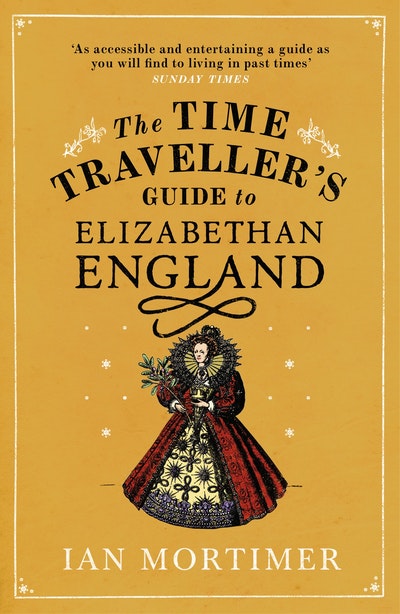
- Published: 1 May 2013
- ISBN: 9780099542070
- Imprint: Vintage
- Format: Paperback
- RRP: $22.99
The Time Traveller's Guide to Elizabethan England
Ian Mortimer

From the author of one of the biggest-selling history books of recent years, the follow-up to The Time Traveller's Guide to Medieval England .
The past is a foreign country - this is your guide, from the bestselling author of The Time Traveller's Guide to Medieval England
We think of Queen Elizabeth I's reign (1558-1603) as a golden age. But what was it actually like to live in Elizabethan England? If you could travel to the past and walk the streets of London in the 1590s, where would you stay? What would you eat? What would you wear? Would you really have a sense of it being a glorious age? And if so, how would that glory sit alongside the vagrants, diseases, violence, sexism and famine of the time?
In this book Ian Mortimer reveals a country in which life expectancy is in the early thirties, people still starve to death and Catholics are persecuted for their faith. Yet it produces some of the finest writing in the English language, some of the most magnificent architecture, and sees Elizabeth's subjects settle in America and circumnavigate the globe. Welcome to a country that is, in all its contradictions, the very crucible of the modern world.
'Vivid trip back to the 16th century...highly entertaining book' Guardian
About the author
Dr Ian Mortimer is the Sunday Times bestselling author of The Time Traveller’s Guide to Medieval England and The Time Traveller’s Guide to Elizabethan England , as well as four critically acclaimed medieval biographies, and numerous scholarly articles on subjects ranging in date from the twelfth to the twentieth centuries. He was elected a Fellow of the Royal Historical Society in 1998. His work on the social history of medicine won the Alexander Prize (2004) and was published by the Royal Historical Society in 2009. He lives with his wife and three children in Moretonhampstead, on the edge of Dartmoor.

Also by Ian Mortimer
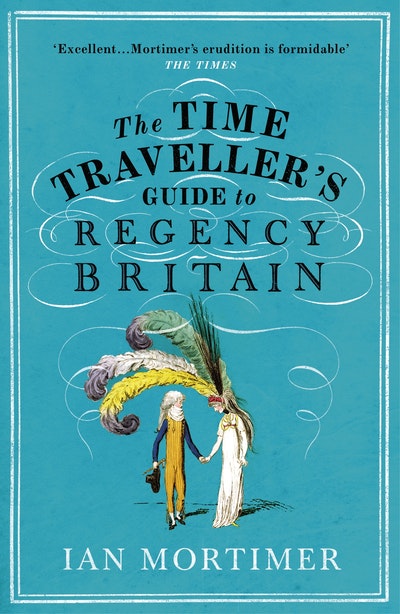
Praise for The Time Traveller's Guide to Elizabethan England
Ian Mortimer manages to inform and delight in equal measure. Sue Baker, The Bookseller
As Mortimer puts it, "sometimes the past will inspire you, sometimes it will make you weep". What it won't do, thanks to this enthralling book, is leave you unmoved Kathryn Hughes, Mail on Sunday
With Shakespeare on hand to give us extra insight into how Elizabethans saw themselves (and what they - often to our eyes inexplicably - found funny), and a society playing out its growing sense of self-awareness as it tiptoes to a modern age, the stage is set for a fresh and funny book that wears its learning lightly Rebecca Armstrong, Independent
Mortimer brings the same depth and flair to the age of Shakespeare and the Virgin Queen. From dental hygiene to table manners, the findings fascinate - even if we don't wish that we were there Independent i
Entertaining history of the country's landscape, people, religion, health and culture in the 16th century The Times
Fascinating account of everyday life in Elizabethan England. PA syndicated review
It is a magnificent social history, rich and scholarly, but with the verve and intrigue of a great novel. Rory Clements
Fascinatingly readable John Ure, Country Life
Mortimer's book has something for everyone... His curiosity is boundless and his profound scholarship is leavened by a sense of fun Christopher Silver, Daily Express
Mortimer's intriguing step-by-step guide to everyday Elizabethan life is studded with gems. A delightful book, full of busy research lightly worn, that is as accessible and entertaining a guide as you will find to living in past times. Andrew Holgate, Sunday Times, Culture Magazine
Ian Mortimer realistically describes the down-to-earth details of everyday living and stirring times in the England before and after the 1590s Ian Finlayson, Saga Magazine
Anyone looking to write a novel about Tudor times would do well to investigate Mortimer's excellent work... Lesley McDowell, Glasgow Sunday Herald
It's like Horrible Histories for grown-ups, and I mean that as a compliment Brandon Robshaw, Independent on Sunday
Absolutely fascinating and great fun Sally Morris, Daily Mail
Mortimer unpicks a period of time conflicted in the history books, his vivid portrayal helping in understanding these contradictions Antonia Charlesworth, Big Issue in the North
Mortimer's Tardis does the job with a welter of detail. Christopher Hirst, Independent
An engaging book that can be read with pleasure Susan Doran, BBC History Magazine
Related titles
Our top books, exclusive content and competitions. straight to your inbox..
Sign up to our newsletter using your email.
By clicking subscribe, I acknowledge that I have read and agree to Penguin Books Australia’s Terms of Use and Privacy Policy .
Ian Mortimer’s Time Traveller’s Guides

Sign up to the Penguin Newsletter
By signing up, I confirm that I'm over 16. To find out what personal data we collect and how we use it, please visit our Privacy Policy
Adventures of a Tudor Nerd
Exploring the 16th Century and Beyond
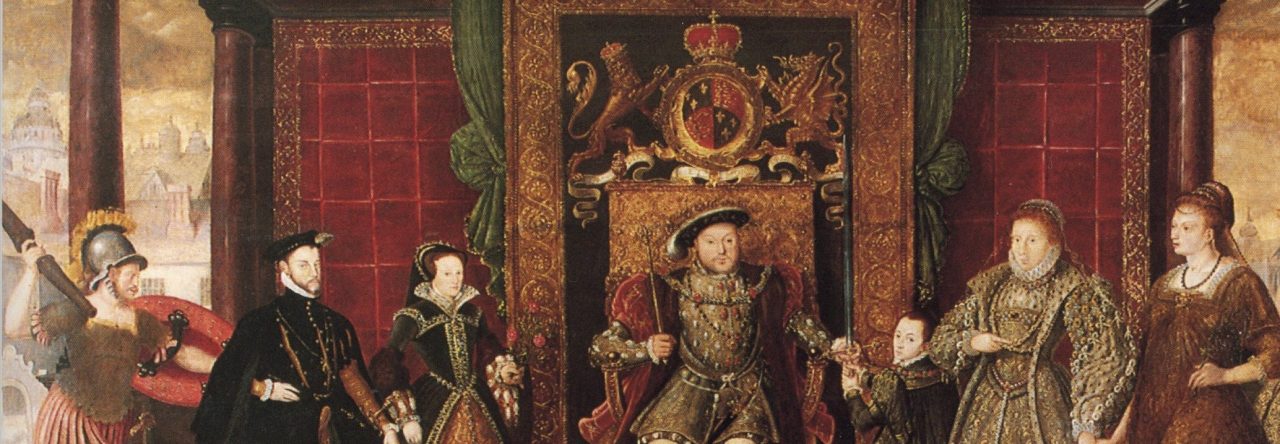
Book Review: “The Time Traveler’s Guide to Elizabethan England” by Ian Mortimer
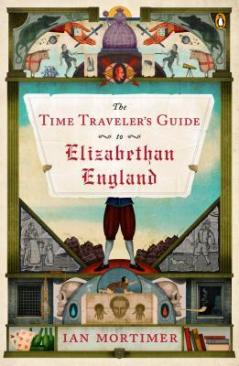
There have been numerous books about the lifestyles of past eras, but what separates those books from the one that Ian Mortimer has written is his writing style and the imaginative descriptions that he included. Many writers give you the facts without the fluff. Mortimer has written this book as if you have stepped back in time and you are seeing the Elizabethan age with your own eyes. It is a treat for all of the senses. To engage the reader in such a way is not an easy feat, but Mortimer does it seamlessly.
I think we all have a vague idea of what the reign of Elizabeth I might have been like. After all, it was known as the “Golden Age”, so it must have been a time of opportunity and great providence for the people, no matter their social standing. Or maybe not. As Mortimer explains, this “Golden Age” was a varnish for a reign that was filled with its own set of trials and tribulations, very similar to what we experience today. Sure, the problems are different, but we can relate to the people of the past because they are human problems. We all deal with things like diseases, where we live, what we eat, what to wear, religion, entertainment, and education. Yet what makes each era unique is how we address these issues.
To see the Elizabethan era, which was on the precipice of the early modern age, in the midst of great progress was a joy. Obviously, this would not have been a time that modern readers would like to have stayed for an extended visit, but it was simply a fantastic guide for those who dream of the past.
I don’t usually share quotes from books in my reviews, but there was something that Mortimer said at the very end of this book that was too poignant not to share.
“History is not really about the past; it is about understanding mankind over time. Within that simple, linear story of change and survival, there are a thousand contrasts, and within each of those contrasts there is a range of experiences, and if we put our minds to it, we can relate to each one. “ (pg. 325)
I picked up this particular book on a whim and I am truly glad I did. It gave me a deeper understanding of the Elizabethan age and what it meant to be Elizabethan. Although we are separated from these people by centuries, their experiences and ours are similar. We are all humans trying to get by each day the best we can. If you have ever wanted to know what the past was really like for those in the Elizabethan era, either for your own personal enjoyment or for research, I highly recommend you add, “The Time Traveler’s Guide to Elizabethan England” by Ian Mortimer to your own personal collection.
Share this:
One thought on “ book review: “the time traveler’s guide to elizabethan england” by ian mortimer ”.
I LOVE this book!
Leave a comment Cancel reply

- Already have a WordPress.com account? Log in now.
- Subscribe Subscribed
- Copy shortlink
- Report this content
- View post in Reader
- Manage subscriptions
- Collapse this bar

- li:not(.tcb-excluded-from-group-item)"> About
- li.menu-item.menu-item-3"> Tudorcon
- li:not(.tcb-excluded-from-group-item)"> Tudor Merch
- li:not(.tcb-excluded-from-group-item)"> Courses
- li:not(.tcb-excluded-from-group-item)"> podcast
- li.menu-item.menu-item-10"> YouTube
- li:not(.tcb-excluded-from-group-item)"> BLOG
Uncategorized
Episode 133: Travel in Tudor England
by Heather - November 21, 2019
Episode 133 of the Renaissance English History Podcast is on Travel in Tudor England. How did our Tudor friends travel? Why did they travel? And how? We dig deeper into travel in the Tudor period. Listen with the embedded player, or read the transcript below.
Book Recommendations:
I can’t recommend Ian Mortimer enough. His books are the kind that you don’t come across that often. Earlier this year I read The Outcasts of Time , and I literally cried when I finished it. I cried in part because I was moved, and also because it was over, and I didn’t know when I would find another book that so moved me.

His Time Traveler’s Guide to Elizabethan England is a non-fiction travel guide to life in Elizabethan England, and was invaluable in prepping this episode. If you get the book on Amazon using the link here, you’ll pay the same price, and I’ll get a part of the profits – so it’s like giving money to the show without costing you anything extra. Woohoo!
Order on Amazon here. https://amzn.to/2QBZCK4
Another book to check out is John Leland’s Itinerary . He spent a decade in the 1530’s and 40’s traveling around England, especially surveying libraries and dissolved monasteries. He wrote extensively about the landscape he encountered. You can buy a paperback copy of his itinerary and travels on Amazon here , or you can read on the Internet Archive .

Related Blog articles:
http://authorherstorianparent.blogspot.com/2011/11/doomed-shrines-last-tudor-pilgrims.html
https://www.historyextra.com/period/medieval/the-hospital-experience-in-medieval-england/
https://www.englandcast.com/2019/11/a-famous-elizabethan-highwayman/
https://www.englandcast.com/2019/11/this-is-the-first-atlas-of-england-and-wales/
And my previous episode on Richard Hackluyt , England’s first Travel Writer

Travel in Tudor England Episode Rough Transcript
[advertisement insert here: if you like this show, and you want to support me and my work, the best thing you can do (and it’s free!) is to leave a rating or review on iTunes. It really helps others discover the podcast. Second best is to buy Tudor-themed gifts for all your loved ones at my shop, at TudorFair.com , like leggings with the Anne Boleyn portrait pattern on them, or boots with Elizabeth I portraits. Finally, you can also become a patron of this show for as little as $1/episode at Patreon.com/englandcast … And thank you!]
Hello and welcome to the Renaissance English History Podcast, a part of the Agora Podcast Network. I’m your host, Heather Teysko, and I’m a storyteller who makes history accessible because I believe it’s a pathway to understanding who we are, our place in the universe, and being more deeply in touch with our own humanity. This is Episode 133, and it’s on the Tudors and Travel.
Also, we had Tudorcon a couple of weeks ago, and if you missed it, you missed a LOT of fun and learning. It was a blast – way more fun than even I expected it to be. But we’re doing it again next year, and for the rest of this year you can get the early bird price, saving $50 off the regular price. So it makes a great Christmas gift. Also, if you do decide to gift someone a Tudorcon ticket, since there’s nothing really to wrap up, I’ll send you a card that you can put under the tree. And stay tuned next week because I’m going to have a really good Black Friday special on the tickets. I’ll send out a note to the newsletter list about that – if you’re not on the list, you can sign up at englandcast.com, or if you just want to check out eng landcast.com/tudorcon2020 you can see all the information, and get your tickets there.
So this episode is about travel in Tudor England, and it’s been something I’ve wanted to delve into for a while. About ten years ago I was out on a walk listening to an audiobook – and for the life of me now I can’t remember what it was – but it mentioned this myth we have that people in the pre modern and early modern period didn’t travel. You know, there’s the whole Monty Python skit of the people digging filth, and never ever going anywhere.
But that’s not strictly true, as with so many stereotypes. The fact is that during the late middle ages and early Tudor period, people had the travel bug. It was harder to travel then than it is now, but it doesn’t mean that there weren’t opportunities, and that people didn’t go anywhere. Now, it was a bit harder for people in England to travel abroad, seeing as how it’s an island, but there were opportunities, and the population was much more mobile than we sometimes think.
There were some professions that expected travel including: Merchants, messengers, people in the military, missionaries and other religious leaders, nobles who had to go between their lands and court, the tax collectors and traveling judges, beggars and vagrants, artists, minstrels and players (for example the traveling theaters who would go from town to town to put on their plays). Farmers would travel to local villages and larger markets to sell their food.
For many, a pilgrimage was the best opportunity you had to go out and see a bit of the world, which is one way that the Dissolution of the Monasteries affected life for people. In many ways, we have modern day pilgrimages that are similar – how many of us have made a trip to see Strawberry Fields, Abbey Road, the Hollywood walk of fame, or anything else like this. In a way, these are modern secular pilgrimages to be up close and personal with a relic or monument that is personal to us, or about which we feel very passionate. No, we’re not visiting a shrine hoping to increase our fertility by seeing the breast milk of the Virgin Mary, but how many times have you heard of musicians visiting the home or studio of a composer or songwriter they loved, and coming away with inspiration for a whole new album? These modern day pilgrimages mean just as much to us in different ways. Now we go to the doctor to handle fertility, and allow our spirit and creativity to be filled up by our pilgrimages.
We know that pilgrimage was incredibly important for people in late medieval and early Tudor England. Chaucer’s great work The Canterbury Tales tells the story of pilgrims making their way to the shrine of Thomas Becket, each of whom have various reasons for travel, including one woman who is hoping to meet her next husband on the road.
In the 9th century, the remains of the Apostle St James were supposedly discovered in Galicia, and the Way of St James, or the Camino de Santiago, became a major route for pilgrims. Many people would be content to visit their own local shrine to pray and make requests of their saint, but others wanted to go further afield. In England there was the very popular shrine of our Lady Walsingham, which was meant to be an exact replica of the manger in which Jesus was born. I did a minicast on the shrine at Walsingham, so I’ll link to that in the show notes for this episode (englandcast.com/travel), but to be brief, it was created when a widow had a vision shortly after the Norman Conquest, and believed she was told by God to create this shrine to the Virgin Mary. People came from all over the country to pray there, especially for issues around childbirth. After Henry VIII and Katherine of Aragon had a son in 1511, Henry went to give thanks to Our Lady of Walsingham, walking the final few miles barefoot as any penitent pilgrim. His visit of thanksgiving was premature, though, as the baby lived only about 6 weeks. The shrine at Walsingham became so popular that the Milky Way became known as Walsingham’s Way because it seemed to point to the shrine.
If you could afford it, going abroad to Jerusalem or Rome was even more exciting.
Soldiers traveled, either up north to fight Scotland, or to France. During the Crusades people even went as far as the Holy Land where they were blown away by the strange sights, sounds, and smells they found there. There was a saying after Edward III’s military victories in France in the mid 14th century, that every house in England had something from the French treasures taken during the fight, and many ships had to transport all the riches home. This is an exaggeration, but it is true that most of the soldiers would have come home with stories about France, or a trinket, stolen or purchased. You see pilgrims especially buying badges and souvenirs of their visits to relics, but soldiers would have also come home with prizes.
Religious people traveled – bishops and church leaders would visit the Pope, or have conferences with other church leaders. Messengers and clerics were on the move.
And nobles traveled, either to visit their various estates, or attend Parliament.
When people traveled, they didn’t use maps. In 1579 Christopher Saxton created a beautiful atlas of England – I’ll put up pictures in the show notes at englandacst.com/travel – but it was big and expensive… too big to travel with. Plus, it’s still not particularly detailed. Instead, they used an itinerary, which was a list of the places you needed to go through to get to your final destination, and the distances between each. At each place, you would ask for directions to the next town. Traveling together would make this easier because one in your number might know parts of the trip, and be able to guide you better. People would try to travel along rivers because they would more likely wind up in a town sooner that way.
In fact, when people thought of the routes, and geography, they did so in terms of the rivers. Today, we generally think about routes by the roads. When I picture a map of, say, Southern California, in my mind, I think about the freeways. The 210 to the 605 to the 5, or the 101 to the 10 to the beach. Or in England you think about the M25. When the antiquarian John Leland was making a tour of libraries and religious houses, spending ten years traveling around and writing of his travels, he did so in terms of the rivers. He wrote about every river he came across, including describing the bridges, and the streams that went off from them. He had a bit of a fascination with the rivers, even writing poetry about them. Take this, about the Thames: “I too, I am persuaded, have heard through the dark shadows of the night the swans, as they attuned their strains in my own river, where the silvery Thames, bright-urned wide-spreading stream, drenches his grey tresses with the swirling waters of the ocean.”
Doesn’t that paint such a lovely picture? You can actually read Leland’s accounts of his travels online, much of it free at places like Project Gutenberg, but there is also a paperback version on Amazon, The Itinerary of John Leland, in or about the years 1535-1543, and I highly recommend that you read it to really get a sense of England during this time. I’ll put a link in the show notes for this episode at englandcast.com/travel.
In terms of bridges, there were some very large ones like a 14 arch bridge in Stratford upon Avon, or the 22 arch bridge over the Thames at Wallingford. But most are made of timber, and in some rural areas they are only 4 or 5 feet wide, so you couldn’t really get a cart across them. So while there were several laws addressing improving the roads during the 16th century, there didn’t seem to be much point in fixing them when you were traveling in a cart that couldn’t go across the first bridge it came to. So the Bridges Act of 1530 empowered the local magistrates to make a determination as to who was responsible for the upkeep of each bridge in their area, and to tax them if they did not keep it in good working order. But the problem with this is that bridges often jmark boundaries between properties, with one person owning land on one side, and the other owning the land on the other. So neither side wanted to take responsibility for the upkeep, and here we have that age-old question of benefit versus who is responsible for upkeep. If a bridge benefitted the total public, a landowner might think that it’s not his responsibility to pay to keep a bridge in good condition when the entire town is using it.
When there weren’t bridges available, there would often be ferries at larger rivers. Like the Long Ferry which travels up the Thames from Gravesend to London, picking up people riding with the post from Dover, and taking them into the city. You can pick it up in the morning, and be in town by 2pm. There are also ferries to take you across a river as well. In London you can cross the river for a penny, and when you walk along from say Charing Cross over through to the City, you can look down and see lots of sets of stairs, and imagine that there are ferrymen with waiting boats right there, ready to take you over to the South Bank. If you want to go further than just across, though, it will cost you more, and is sometimes dependent on whether the tide is with you, or against you.
Did you know that the use of the word “road” as a noun dates from around the 1560’s? More commonly people would travel on highways, paths, lanes, streets, and ways. And traveling the paths, ways, or streets, as Ian Mortimer points out, you are going along the oldest man made parts of the landscape, in use since the Roman times. Even in the cities, the main thoroughfares are built around the original Roman roads.
The roads themselves followed the Roman roads, and as the Roman roads had deteriorated, new ones had been built alongside them. But these roads had been built for people traveling on foot, or horse, but not coaches with iron wheels. The wheels could completely destroy the roads, as the vast majority aren’t paved in any way. Gravel would be put in to soak up the mud in main intersections, but for most of the way you’d be going over deep ruts. The landowners who have land that borders on the highway are supposed to maintain the ditches that drain the roads, but they don’t always do so. Main roads were meant to kept up by the King so that he could move his armies and his court around easily. But the side roads could often be in terrible conditions, and you’d have to find another way around.
In towns there would be other obstacles to the roads. Some people would stack their firewood under the eaves of their homes, and block the way on the road. People would also dig in the roads for sand or clay to repair their wattle buildings, and there would be holes left in the road. Sometimes people would also dig wells right by the highway, meaning that drowning in one of these roadside wells was a real risk.
There were several acts of parliament to try to improve the roads – the Act of 1555 established a process where church wardens in each parish can appoint two surveyors of the roads at Easter. They announce four days in the year where all parishioners will repair the roads, and every farmer has to send a cart with two men, and every cottager has to work themselves, or else they will receive heavy fines. In 1563 the Act was extended to restrict the size of gravel and sand pits, digging ditches beside the main roads, and allowing surveyors to take small stones from quarries to mend the roads. It also increased the number of days to do road works to six instead of four. In 1576 a third act handles repair of specific roads, and there are later records showing that the work was actually done, and people were fined for not participating.
How did people travel? Of course there were horses, boats, and your own two feet. But people also used four wheeled coaches more during this time. Four wheeled coaches had been in use since the 13th century, but they are becoming more popular for gentry to use now, as opposed to just the nobility and royalty. Coaches were more popular throughout Europe, so as the returning Protestant refugees came home early in Elizabeth’s reign, they brought back with them the ability to drive and manage coaches. One man, William Boonen, came back from the Netherlands in 1564, and he so impressed Elizabeth with his driving skills, she made him her personal coachman. The Queen had four coaches made for her between 1578 and 1586, so taken was she with them for travel. Coaches became much less expensive during this time – the Earl of Essex had a used one he valued at just 8 pounds, though of course you still need to pay for horses, and feed them. Or you can rent a coach in London for about 16 shippings a day, plus food for the coachman and feed for the horses.
When you’re traveling around in your coach you have to be careful of accidents. In 1562 a twelve year old girl was killed when a cart crunched her against the wall in Aldgate.
John Stow, in his survey of London wrote: Then the number of carres, drayes, carts and coatches, more then hath beene accustomed, the streetes and lanes experience proueth.
The Coach man rides behinde the horse tayles, lasheth Carts and them, and looketh not behind him : The Draye man sitteth wefgouemed and sleepeth on his Drea, and letteth his horse leade him in this Citty home : I know that by the good lawes and customes of this dan g er0Tls – Citty, shodde carts are forbidden to enter the same, except vpon reasonable causes as seruice of the Prince, or such like, they be tollerated. Also that the fore horse of euery carriage should bee lead by hand : but these good orders are not obserued. Of olde time Coatches were not knowne in this Island, but chariots or Whirlicotes, then so called, and they onely vsed of Princes or great Estates, such as had their foot- men about themand for example to note, I read that Richard the second, being threatned by the rebels of Kent, rode from the Tower of London to the Myles end, and with him his mother, because she was sicke and weake in a Wherli- cote, the Earles of Buckingham, Kent, Warwicke and Oxford, Sir Thomas Per cie, Sir Robert Knowles, the Mayor of London, Sir Aubery de Vere that bare the kinges sword, with other Knights and Esquiers attending on horsebacke. 1 He followed in the next year the said king Richard , who took to wife 1 Anne daughter to the king of Boheme, that first brought whether the riding vpon side saddles, and so was the riding in Wherlicoates and chariots forsaken, except at Coronations and such like spectacles : but now of late yeares the vse of coatches brought out of Germanie is taken vp, and made so common, as there is neither distinction of time, nor difference of persons obserued : for the world runs on wheeles with many, whose parents were glad to goe on foote. John Stow, Survey of London
In 1601 a Bill was presented to Parliament to limit the use of coaches, but it was rejected.
If you wanted to go quickly, you would go on a horse. You could either buy one at a horse fair – paying at least £3 for a good one, though you could also buy a used one the same way we buy used cars today. You could also rent one. If people knew you at the local inn, they would often have an extra you could rent, or you could use one from one of the post routes. In 1516 Henry VIII appointed a Master of the Posts, and this was the very early forerunner of the Royal Mail. There were three postal routes in the country – one going out west as far as Portsouth, one going north to Berwick, and one going to Dover via Canterbury. And along each route were stations every 20 miles where you could hire a horse, paying a per mile fee. You could return it at the next station, or if you needed to go somewhere off the route, they would send someone to pick the horse up from your final destination, at an additional fee, of course. By this time period there were a dozen or so types of horses available, used for different types of uses from hauling and carrying like a packhorse, to riding.
How fast did people travel?
Of course, if you’re going a long distance and you need to go quickly, you’re going to have to change horses on a regular basis. The post set a minimum speed of 7 miles per hour on dry roads in the summer, and if had good weather and strong thighs for riding you could do upwards of 75 miles a day easily, especially if you could change horses midway through.
If you were traveling on foot, it would probably be more like 3 miles an hour in good conditions, so you could probably do 15 or 20 in a day. But of course in bad weather, you might only be able to go a mile an hour. Also, remember that you need to stop to rest, and eat, and that took time.
In late October 1599 a Thomas Platter described the “great speed” with which he traveled from Gravesend to Dover – a distance of 44 miles, which he did in 5 hours.
But in the winter, with only about 8 hours of daylight, if you couldn’t change horses, you probably couldn’t go more than 2-3 miles an hour. In 1603 when Elizabeth I died Sir Robert Carey was the one appointed to ride from London to Scotland to tell James that he was now the King. He left between 9-10am on the 25 of March, and reached Doncaster, 162 miles away, that night. The next day he rode the 136 miles to his house at Widdrington. On the third day he fell, which resulted in a bleeding head, but still the man was unstoppable and rode on, going more slowly, but still reaching Edinburgh that night, 99 miles away. He managed the 397 miles in three days.
Traveling by roads could be dangerous, of course, especially if you were on foot or your horse was tired. There are higher numbers of poor people and vagrants than before – loyal listeners will remember an episode we did on the poor in Tudor England, and the attempts to address it. But for the purposes of our discussion here, we know that there are lots of thieves on the roads hiding behind bushes to surprise travelers. Between 1567 and 1602 accused criminals were tried for theft of over £1000 in stolen items and money just in Essex, and that’s just for 60 cases that actually made it all the way to court. In Cambridgeshire there is a famous highwayman called Gamiel Ratsey – he was actually born into a well to do family, but “”took to evil courses as a boy” and became a thief. He became famous not just for the amount that he robbed, but also his sense of humor. On one occasion he robbed two wool merchants and knighted them by the roadside as Sir Walter Woolsack and Sir Samuel Sheepskin.On one occasion Ratsey and his friends successfully robbed a large company of nine travellers. Before he relieved a Cambridge scholar of his property, he extorted a learned oration from him. To the poor he showed a generosity which accorded with the best traditions of his profession. But within two years his partners betrayed him to the officers of the law, and he was hanged at Bedford on 26 March 1605.
Often the robberies would be entire communities working together. So if you’re at an inn, someone working there would see that you had money, and would keep track of how many were in your group. In the morning when you set off, somehow the highwaymen know just where you are going, and where you came from, and you find yourself trapped on the road.
The king’s highways were supposed to be cleared either side for 200 feet. This was to deny cover to the brigands who preyed on travellers. Sometimes there were waymarks to show routes through woods, but these could easily be moved to lead travellers into the hands of waiting bandits.
But of course it wasn’t all bad, or else business would never get done, and people did get out and see the world, much more often than we might expect. I hope that this episode sort of opened your eyes to that.
So that’s it for this week. The book recommendation is a Time Traveler’s Guide to Elizabethan England by Ian Mortimer – I’ll put a link up on the site.
And you can get in touch with me through the listener support line at 801 6TEYSKO or through twitter @teysko or facebook.com/englandcast. And I’ll be back in about ten days or so with an episode on Tudor London – what was London like for our Tudor friends? So stay tuned for that.

Dive Deeper!
Join the Free tudor Learning Circle! The Only Social Network for Tudor nerds!

This is the first atlas of England and Wales
Episode 134 tudor london: st paul's show notes, you may be interested in, henry viii’s illegitimate children: truth or tale, the revival of anglo-saxon history in tudor england, anne vavasour and sir henry lee’s forbidden love.
- Cast & crew
- User reviews
The Time Traveller's Guide to Elizabethan England

Ian Mortimer transports viewers back to Elizabethan England and reveals, in vivid detail, a living, breathing Tudor world. Viewers learn how ordinary Tudor housewives turned plants into medi... Read all Ian Mortimer transports viewers back to Elizabethan England and reveals, in vivid detail, a living, breathing Tudor world. Viewers learn how ordinary Tudor housewives turned plants into medicine, how the middle classes kept themselves clean using linen cloths, how the poor made p... Read all Ian Mortimer transports viewers back to Elizabethan England and reveals, in vivid detail, a living, breathing Tudor world. Viewers learn how ordinary Tudor housewives turned plants into medicine, how the middle classes kept themselves clean using linen cloths, how the poor made pottage, how cooks of the rich devised recipes for new ingredients, and how Tudors learned ... Read all
- Ian Mortimer
- 1 User review

- Self - Presenter
- All cast & crew
- Production, box office & more at IMDbPro
User reviews 1
- mrjkolander
- Feb 25, 2024
- 2013 (United Kingdom)
- United Kingdom
- 360 Production
- BBC Northern Ireland
- See more company credits at IMDbPro
Technical specs
- Runtime 1 hour
Related news
Contribute to this page.

- See more gaps
- Learn more about contributing
More to explore

Recently viewed

Immerse Yourself in the Past
Sign up to receive all the latest information and inspiration to help you learn about, and plan, your visit to tudor england., as a lover of tudor history, you want to immerse yourself deeply in the past..
But how do you feel that deep sense of connection we history lovers crave from merely reading the stories of Tudor people and events in the pages of a book, particularly when there is so much information – and misinformation – out there?
If this is your deepest wish, and you struggle to find high quality, factual information you need to make it happen, then it’s time to turn this around.
Alongside committing to deliver thoroughly researched content, the one other magical ingredient that will bring you as close to time travel as humanly possible is the belief that… It is only time, and not space, which separates us from the past.
It is only time , and not space , which separates us from the past .
Imagine knowing exactly where to go and what to see on your Tudor road trips, confident that you will never miss a thing. Imagine being able to see vividly in your mind’s eye how events unfolded by being able to pinpoint the physical spaces in which they occurred. Imagine walking away with that feeling that you have finally come home, that unique sense of being whole that only other Tudor history lovers truly understand.
I promise that when you become a member of The Tudor Travel Guide community, you can relish your immersion into the past with all the facts and hard-to-find details at your fingertips.
So, are you ready for me to help you build your own time machine? You can join the adventure by subscribing to my mailing list. Simply follow this link, and I will get you started by sending you my digital mini-guide, ‘Tudor London Made Easy: A Brief Guide to the Essential Places to Visit in the Capital’.
Serving the Tudor Community
Over the years, I realized that after visiting certain Tudor places, I had missed some vital element of the place’s history, or perhaps there was a historic site nearby that I had missed altogether. It was so frustrating!
Then something amazing happened. In 2010, when I was writing my first book about Anne Boleyn, a whole new world opened up in my imagination. For the first time, I learned about the great powerhouses of the sixteenth century, how the rooms were used and flowed from one to another and what life actually was like in a Tudor palace. I could see everything in vivid detail, and I could finally place important Tudor events in the places where they occurred; it was revelatory and uplifting! This rich and detailed understanding helped me connect more deeply with the past. I now know how to make the most of any virtual or physical journey into our Tudor past. In short, I have mastered time travel like a pro …
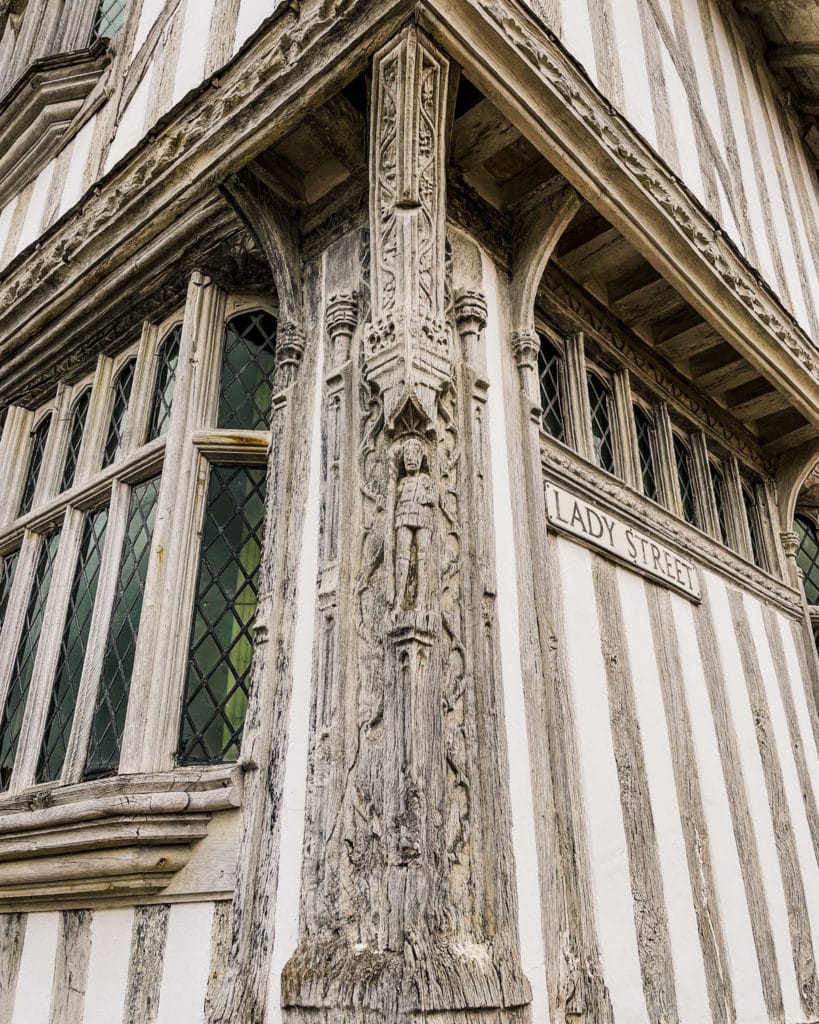
The Tudor Travel Guide Membership: ‘The Ultimate Guide to Exploring Tudor England’.
Your time-travelling resources ….
Here at the Tudor Travel Guide, we have a membership called ‘ The Ultimate Guide to Exploring Tudor England ‘. My members benefit from exclusive content and live chat. So, if you love going deeper, knowing all the facts and hard-to-find details at your fingertips, you might want to become one of my valued members…
Here is what you can expect to enjoy in THE most comprehensive and ever-growing content library, specifically designed for people who love Tudor places.
- Travel Itineraries and Progresses
- A Map of Tudor Locations
- A Library of Tudor Tombs
- A Catalogue of Historic Accommodation
- Travel Information and Tips
- Live Masterclasses
- Member-only Podcasts
- Member-Only Videos
- A Community Forum
What the Community is Saying The Tudor Travel Guide

“The depth and breadth of information is immeasurable. You can feel the passion the guest speakers have about their topics. That same passion is apparent in Sarah. That’s one of the reasons why I love watching and listening to her. She’s fun, engaging, real, and so knowledgeable. Most of all, I trust her.”

“The Tudor Travel Guide helped me through lockdown. I found a safe space to indulge my passion for all things Tudor…I could get completely lost in the past. I love the fact that Sarah delves into everyday lives in Tudor times. It adds an extra layer of learning and intrigue.”

Sarah is the perfect guide to combine my love of Tudor history & travel. I particularly enjoy her enthusiasm, curiosity and detailed knowledge of the Tudor period. She is an expert at communicating all of the above to viewers, listeners and readers in equal measure.”
My Commitment to You
My passion is to help you to experience the same, to soak up every hidden gem and delicious Tudor detail so that every visit is as complete as it can be and you never have to experience that ‘if only I had known…’ feeling again! Whether you prefer to read, listen or watch, there is something here for you to craft your own adventure in time. Ready to get started? Visit this page to find exactly what you need.
My Promise is to provide you with as many delicious details as possible, so that when you visit a Tudor place, you never have to experience that ‘if only I had known…’ feeling again!
Let’s get started, what to do next: subscribe.
So, let’s get to know one another. I’d love you to be a part of ‘The Tudor Travel Guide’ community. Subscribing is easy. Just click on the grey button. Once you are on my mailing list, you can choose your own adventure!
Planning a Trip to Explore Tudor London?
Grab yourself some inspiration with a checklist of 17 essential Tudor places to visit in the UK’s capital with my Tudor London Made Easy , digital miniguide.
- International
- Schools directory
- Resources Jobs Schools directory News Search

What was life like in Tudor England? Class Assembly Script
Subject: History
Age range: 7-11
Resource type: Assembly
Last updated
29 April 2024
- Share through email
- Share through twitter
- Share through linkedin
- Share through facebook
- Share through pinterest

Through our detailed script, students will have the opportunity to experience the stark contrasts of Tudor society—from the grandeur of the royal court to the simplicity of peasant life. The script paints a vivid picture of the era, exploring the cultural, social, and political aspects that defined Tudor England.
Features of this resource include:
- Intriguing Script: A well-researched and engaging script that brings the Tudor period to life, allowing students to delve into the era’s customs, innovations, and daily activities.
- Comprehensive Character List: A variety of roles that represent the breadth of Tudor society, including royals, nobles, explorers, and common folk, ensuring that every student can participate and contribute to the narrative.
- Prop Recommendations: A list of suggested props that will add authenticity and depth to the performance, helping students to fully immerse themselves and the audience in the Tudor experience.
- Adaptations for Diverse Audiences: Guidelines for adapting the script to suit different year groups and school types, making the performance inclusive and adaptable to various educational settings.
The resource is provided in a convenient PDF format, perfect for easy printing and sharing with your class. If you wish to personalize the script or make specific changes, you can upload the PDF to Google Docs. Once in Google Docs, the script becomes editable, allowing you to tailor it to your assembly’s unique requirements.
This class assembly script does more than just entertain; it serves as a window into the past, prompting students to explore and reflect on the complexities of life during the Tudor reign.
After your time-traveling adventure with this script, be sure to explore the wide range of other educational resources available on the TES website. We offer a diverse selection of materials across various subjects and themes, all crafted to support teachers in delivering engaging and comprehensive lessons.
Dress in your Tudor best and prepare for a regal assembly with the “Class Assembly Script: What Was Life Like in Tudor England?” Download your copy today, and let your students take the stage for a historical exploration that will leave the audience yearning to learn more about this
Tes paid licence How can I reuse this?
Your rating is required to reflect your happiness.
It's good to leave some feedback.
Something went wrong, please try again later.
This resource hasn't been reviewed yet
To ensure quality for our reviews, only customers who have purchased this resource can review it
Report this resource to let us know if it violates our terms and conditions. Our customer service team will review your report and will be in touch.
Not quite what you were looking for? Search by keyword to find the right resource:

IMAGES
VIDEO
COMMENTS
KS3 History: Elizabethan England and the Tudor world. Historian Ian Mortimer transports viewers back to Elizabethan England and reveals, in vivid detail, a living, breathing Tudor world. Learn how ...
In this compelling history documentary, Dr. Ian Mortimer travels through a new and upwardly mobile section of Elizabethan society. He reveals how urbanization improved lives, heads to Shakespeare's school to learn how education transformed society and explores how this age of discovery helped spur a scientific revolution.
An entertaining, accessible guide to Elizabethan England—the latest in the Time Traveler's Guide series Acclaimed historian Ian Mortimer shows readers that the past is not just something to be studied; it is also something to be lived. Using diaries, letters, books, and other writings of the day, Mortimer offers a masterful portrait of daily life in Elizabethan England, re-creating the ...
The time traveller's guide to Elizabethan England ... Republisher_time 603 Scandate 20220227012928 Scanner station12.cebu.archive.org Scanningcenter cebu Scribe3_search_catalog isbn Scribe3_search_id 9781847921147 Tts_version 4.5-initial-80-gce32ee1e ...
50min. 7+. One group emerged during the reign of Elizabeth I: the middle classes. In this compelling history documentary, Dr Ian Mortimer travels through a new and upwardly mobile section of Elizabethan society. He reveals how urbanization improved lives, heads to Shakespeare's school to learn how education transformed society and explores how ...
Home > The Tudors > The Time Traveller's Guide to Elizabethan England. The Time Traveller's Guide to Elizabethan England. £12.99. Add to Bag. Add to Wishlist. Description. The past is a foreign country - this is your guide. We think of Queen Elizabeth I's reign (1558-1603) as a golden age. ...
F resh from his acclaimed tour through 14th-century England, Ian Mortimer travels forward 200 years in his time machine.Setting us down in the reign of Elizabeth I, he aims to recreate, as he puts ...
About The Time Traveler's Guide to Elizabethan England. The author of The Time Traveler's Guide to Medieval England takes you through the world of Shakespeare and Queen Elizabeth I From the author of The Time Traveler's Guide to Medieval England, this popular history explores daily life in Queen Elizabeth's England, taking us inside the homes and minds of ordinary citizens as well as ...
Dr Ian Mortimer has been described by The Times newspaper as 'the most remarkable medieval historian of our time'. He is best known as the author of The Time Traveller's Guides: to Medieval England (2008); to Elizabethan England (2012); to Restoration Britain (2017); and to Regency Britain (2020). He is a Fellow of the Royal Historical Society ...
Dr Ian Mortimer is the Sunday Times bestselling author of The Time Traveller's Guide to Medieval England and The Time Traveller's Guide to Elizabethan England, as well as four critically acclaimed medieval biographies, and numerous scholarly articles on subjects ranging in date from the twelfth to the twentieth centuries.He was elected a Fellow of the Royal Historical Society in 1998.
The Time Traveller's Guide to Medieval England: A Handbook for Visitors to the Fourteenth Century. by Ian Mortimer. 4.01 · 24,143 Ratings · 1,757 Reviews · published 2008 · 45 editions. Imagine you could get into a time machine and trav…. Want to Read.
Dr Ian Mortimer is the Sunday Times-bestselling author of the Time Traveller's Guides to Medieval England, Elizabethan England, Restoration Britain and Regency Britain, as well as four critically acclaimed medieval biographies.He was elected a Fellow of the Royal Historical Society in 1998. His work on the social history of medicine won the Alexander Prize in 2004 and was published by the ...
Ian Mortimer. Bodley Head, 2012 - History - 420 pages. From the author of one of the biggest-selling history books of recent years, the follow-up to "The Time Traveller's Guide to Medieval England." The past is a foreign country -- this is your guide. We think of Queen Elizabeth I as 'Gloriana': the most powerful English woman in history.
Time Traveller's Guide to Elizabethan England. ... Viewers learn how ordinary Tudor housewives turned plants into medicine, how the middle classes kept themselves clean using linen cloths, how the ...
50min. 7+. One group emerged during the reign of Elizabeth I: the middle classes. In this compelling history documentary, Dr Ian Mortimer travels through a new and upwardly mobile section of Elizabethan society. He reveals how urbanization improved lives, heads to Shakespeare's school to learn how education transformed society and explores how ...
Buy The Time Traveller's Guide to Elizabethan England by Ian Mortimer from Waterstones today! Click and Collect from your local Waterstones or get FREE UK delivery on orders over £25. ... Tudor. Leanda de Lisle. £12.99. Paperback Added to basket. Modernity Britain. David Kynaston. £16.99. Paperback Added to basket. Witches. Tracy Borman. £ ...
Available from Amazon UK and Book Depository now. Will be published in the US on April 9, 2012. Synopsis. The Time Traveller's Guide to Elizabethan England. We think of Queen Elizabeth I as 'Gloriana': the most powerful English woman in history. We think of her reign (1558-1603) as a golden age of maritime heroes, like Sir Walter Raleigh ...
The Time Traveller's Guide to Medieval England Ian Mortimer Discover an original, entertaining and illuminating guide to a completely different world : England in the Middle Ages. Imagine you could travel back to the fourteenth century.
His love letter to the Elizabethan age entitled, "The Time Traveler's Guide to Elizabethan England" is a delightfully imaginative guide to the past. There have been numerous books about the lifestyles of past eras, but what separates those books from the one that Ian Mortimer has written is his writing style and the imaginative ...
His Time Traveler's Guide to Elizabethan England is a non-fiction travel guide to life in Elizabethan England, and was invaluable in prepping this episode.If you get the book on Amazon using the link here, you'll pay the same price, and I'll get a part of the profits - so it's like giving money to the show without costing you anything extra.
The Time Traveller's Guide to Elizabethan England: With Ian Mortimer. Ian Mortimer transports viewers back to Elizabethan England and reveals, in vivid detail, a living, breathing Tudor world. Viewers learn how ordinary Tudor housewives turned plants into medicine, how the middle classes kept themselves clean using linen cloths, how the poor made pottage, how cooks of the rich devised recipes ...
The Tudor Travel Guide Membership: 'The Ultimate Guide to Exploring Tudor England'. Your Time-Travelling Resources… Here at the Tudor Travel Guide, we have a membership called 'The Ultimate Guide to Exploring Tudor England'. My members benefit from exclusive content and live chat. So, if you love going deeper, knowing all the facts ...
Watch clips from BBC Two's season exploring scandal and sacrifice in the Tudor Court. More clips from Time Traveller's Guide to Elizabethan England Globe Theatre in 1599 — Brave New World
The script paints a vivid picture of the era, exploring the cultural, social, and political aspects that defined Tudor England. Features of this resource include: Intriguing Script: A well-researched and engaging script that brings the Tudor period to life, allowing students to delve into the era's customs, innovations, and daily activities.